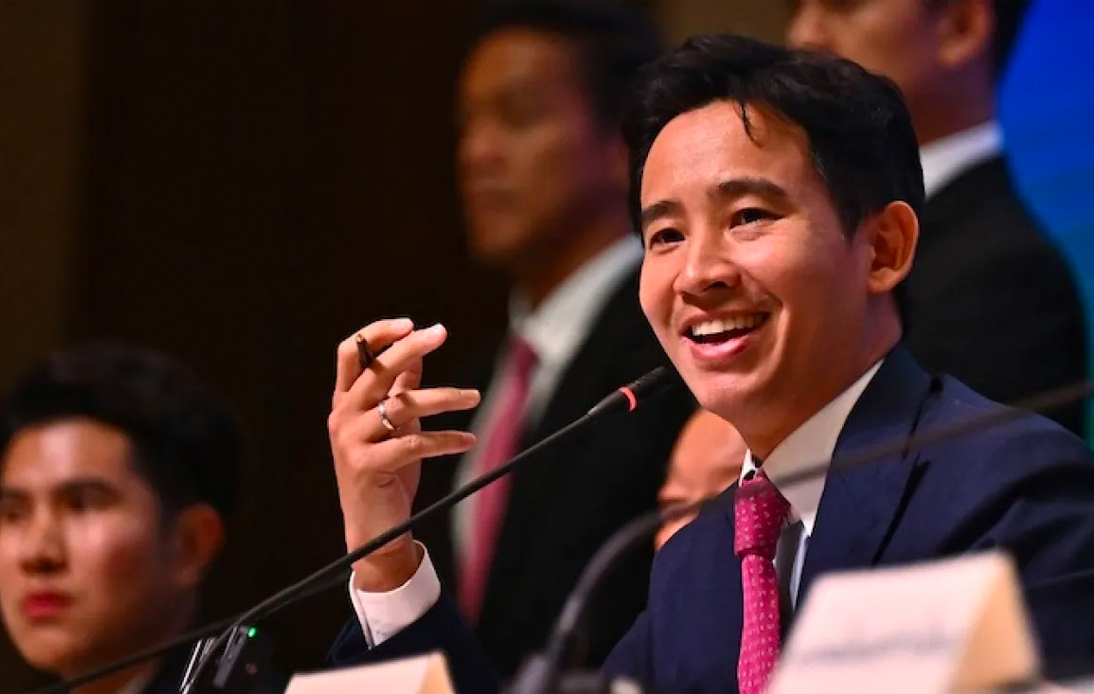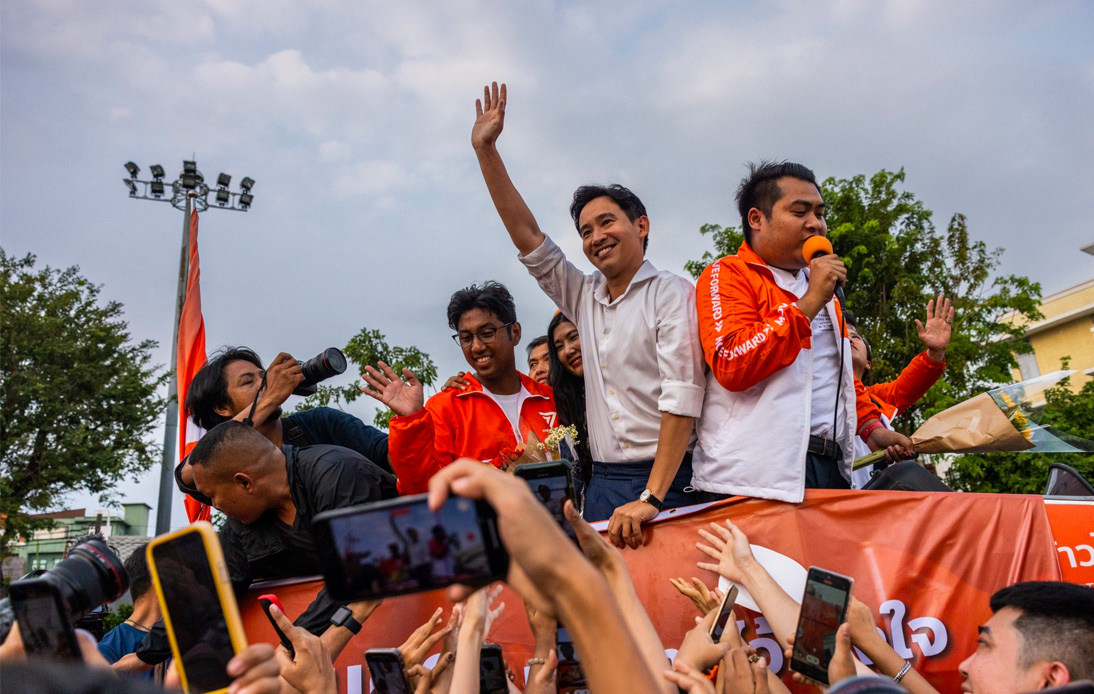
The coalition of eight parties, spearheaded by the Move Forward Party (MFP), has established a committee to lay the groundwork for a power transfer, an action outgoing Prime Minister Prayut Chan-o-cha has deemed “inappropriate”.
On Tuesday, Pita Limjaroenrat, leader of the MFP and candidate for the Prime Minister role, unveiled the creation of a “transitional coordination committee” after a meeting with the potential coalition at the Prachachat Party’s central office in Bangkok.
All eight party heads reached a consensus to establish the committee with Mr Pita as its presiding officer.
Beyond the transitional coordination committee, seven functional groups were established.
These groups address issues such as electricity, diesel, and energy pricing; drought and El Nino phenomena; and challenges in the three southernmost border provinces;
Issues such as constitutional amendments; environmental issues and PM2.5 pollution; grassroots economy and SMEs; and drug-related issues are also included.
Each group is made up of delegates from the eight parties and will conduct routine meetings to report their advancements to the transitional coordination committee.
The approach aims to foster consensus and formulate comprehensive policies to address challenges and consolidate them into joint policies, Mr Pita stated.
The final policies will be publicized in the parliament and executed by both the executive and legislative branches, as explained by Mr Pita.
“Our work is proceeding smoothly, and we are committed to working together to solve the problems of the people to the best of our abilities.”
“Furthermore, the allocation of positions within the executive branch will always prioritise the people’s interests,” he revealed.
However, Gen Prayut, when questioned by journalists about the MFP’s transitional schemes, expressed his disapproval and cautioned against arranging any discussions with governmental agency representatives.
Despite the MFP’s electoral victory, it has not yet assumed governmental power.
“That is inappropriate,” Gen Prayut of the United Thai Nation Party declared. “Government organisations are still under the present government. They will prepare information for the transition in the future.”
When inquired if Mr Pita was behaving like a second prime minister by engaging with key figures from the business community and other groups, Gen Prayut reported he had no such impression.
“I’m not paying attention to it. I’m not igniting any disputes with anyone. As I’ve mentioned, we should respect democratic norms,” he remarked.
The Prime Minister clarified that the MFP could meet with representatives from the private sector, but it was not suitable to engage with government organizations for the moment.
When asked about the response of foreign investors post-election, Gen Prayut mentioned they have been on standby for the new government to take form.
Several Politicians plan to revise government projects, causing concern as some projects are progressing well, Gen Prayut said
The existing government has been making efforts to allure foreign investors to uplift the economy and GDP, Gen Prayut added, emphasizing that the incoming government should assign similar priority to fostering overseas investment.
“If any damage arises, there is nothing I can do because I will have left office by that time,” Gen Prayut, who assumed power in a 2014 coup before formally becoming prime minister, remarked.
When asked about the intention to replace compulsory military service with voluntary enlistment under the MoU signed by the MFP-led coalition last week, Gen Prayut, who currently holds the position of the Defence Minister, simply responded: “It is up to them.”
The MFP and its allied parties recently ratified an MoU expressing agreement on a shared policy platform.





















